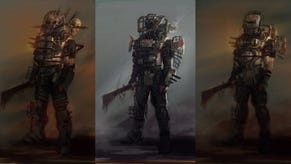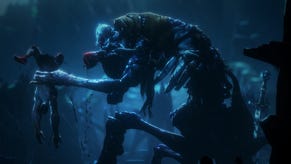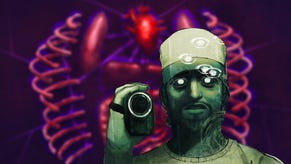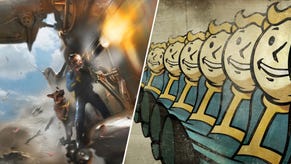Use Questions on Developer: A Ron Gilbert Retrospective
Monkey Island creator Ron Gilbert reflects on 30 years in the industry, and a new chance to revive his old brand of point-and-click magic.
This article first appeared on USgamer, a partner publication of VG247. Some content, such as this article, has been migrated to VG247 for posterity after USgamer's closure - but it has not been edited or further vetted by the VG247 team.
1985 was an important year for Ron Gilbert. After a short stint programming Commodore 64 games that would never be released, he joined Lucasfilm Games in what amounted to an offer he couldn't refuse. Given that he initially received his creative spark from watching Star Wars as a kid, Gilbert had no choice but to accept a contract position at The House that George Built. But his story starts a bit earlier than that...
USgamer: To start things off, I’m just curious as to where the fascination with games started. Was it necessarily video games that got you interested in the idea of game design?
Ron Gilbert: I think it really started with wanting to learn how to program. I guess I was probably 13 years old, and my dad was a physicist, so he had access to a lot of cutting-edge stuff, [like these] small programmable calculators... I just found them very interesting from a technology standpoint, and wanted to learn how to program them. I think that when you’re a kid and you want to learn how to program, programming games is about the only interesting thing out there to program, so I think there’s just this kind of natural gravitation towards game-type stuff.
And at the time I was doing that stuff, the only real games out there were arcade games—I don’t know that the Atari 2600 had even come out yet at that point, so I think all I’d really been exposed to were things like Space Invaders and Asteroids. I think my interest in games really just came from wanting to learn how to program; I think that’s where it all stemmed from.

USg: Did games like Space Invaders and Asteroids necessarily create the spark in you that made you interested in the medium, or was it maybe something that came about later than those two?
RG: Games were just an interesting thing to program for me, and probably all the way up through my freshman year of high school, I wanted to go to film school. I was not gonna go off and work on computers and computer stuff, I was gonna try to be a movie director, and that’s kind of what my focus was. And I think there was a point that I—probably around that time—really started to like the programming stuff, and I think the programming kind of became this surrogate for the creative outlet that I wanted to use for making movies. There was this point where I think I realized—and I mean, it wasn’t like an epiphany moment, it was a slow evolution—that making games was providing me a lot of that same creative outlet that I felt like I would have gotten through making film.
USg: As someone who has made a lot of adventure games, how aware were you of the genre as it started taking off? Were these things necessarily on your radar?
RG: No, they really weren’t at all. The first adventure game I played was at our local college, and it was on the mainframe computer. It was just “Adventure,” that very first adventure game, and I played that a lot, and I mostly played with my friends—a group of us gathered around the computer terminal. We’d play it, and I really enjoyed it, and I was a little bit familiar with some of the early games that came out, like pre-Infocom—it was actually before Infocom came out—there were a couple on the Apple II and stuff, but I didn’t really play them very much. They were all text, and I was far more interested in graphics and little spaceships flying around the screen and things like that, so the text adventures never really caught me that much at all.
And it wasn’t really until Maniac Mansion when Gary [Winnick] and I were coming up with this game and we really didn’t know what genre the game was. Maniac Mansion did not start out as an adventure game, like we said “Hey, let’s make an adventure game.” We just said “Hey, let’s make a game.” We started playing around with these characters and the world, and I personally was very frustrated because I kind of felt like there was something wrong with the game. We had a lot of ideas and we had a lot of these great characters and this great setting, but I just could not picture the gameplay in my head in a cohesive way.

Then I went down to see my aunt for Christmas, and my cousin was playing [the original] King’s Quest, and that was the first time I had seen any of the King’s Quest games and the first time I had ever seen an adventure game with graphics. My understanding of adventure games before that were all text, and I just watched him play, and it was like this epiphany moment... Like “Oh, this is what Maniac Mansion needs to be. It needs to be an adventure game with these pictures on it.” And that was the point that Maniac Mansion just instantly turned into an actual adventure game.







